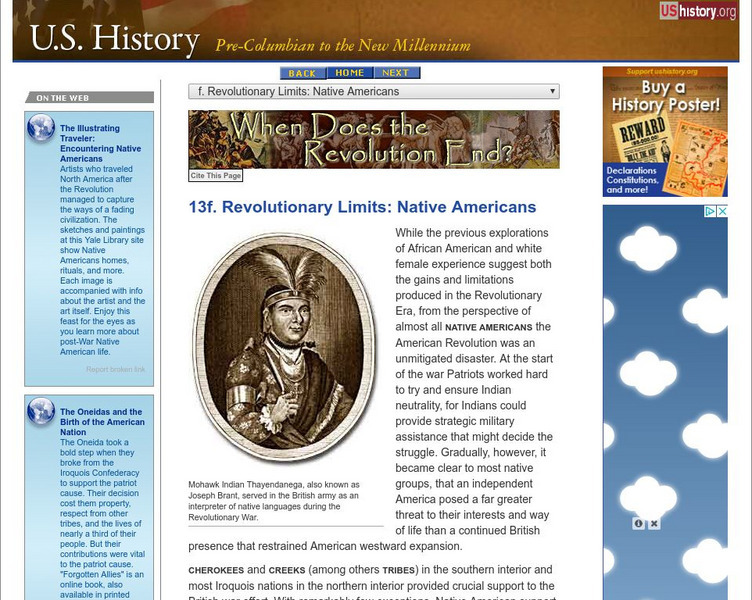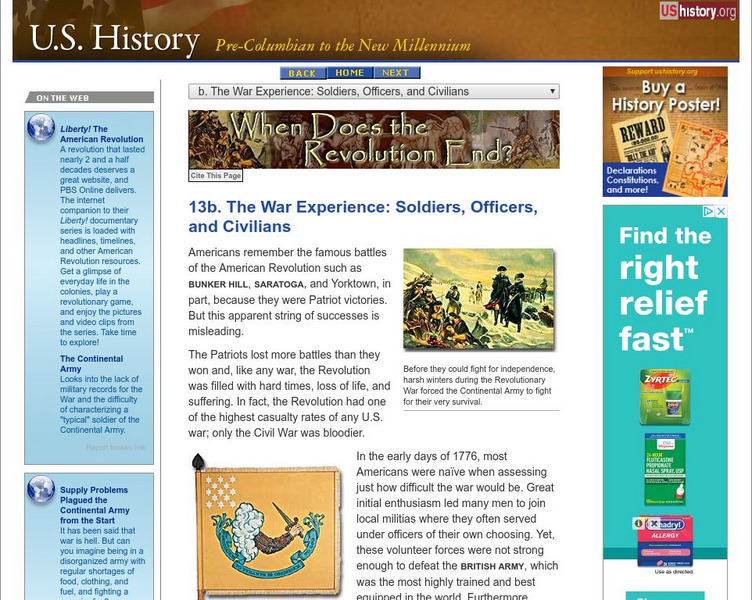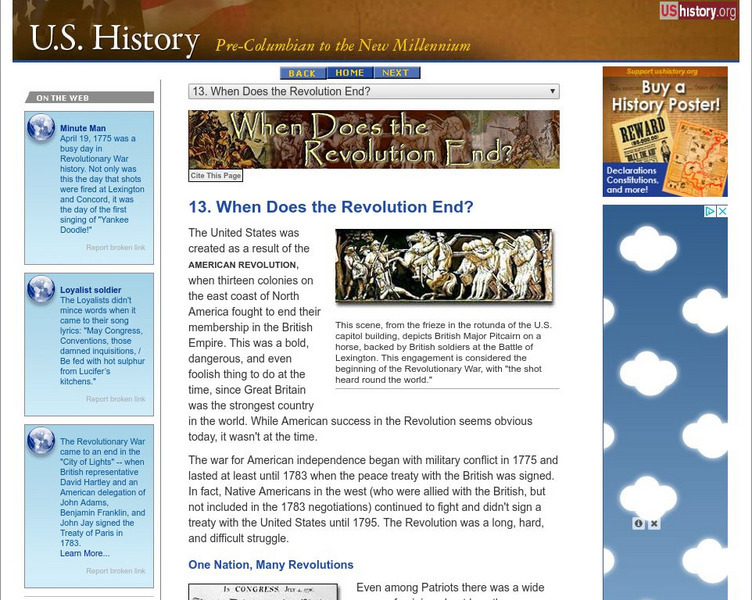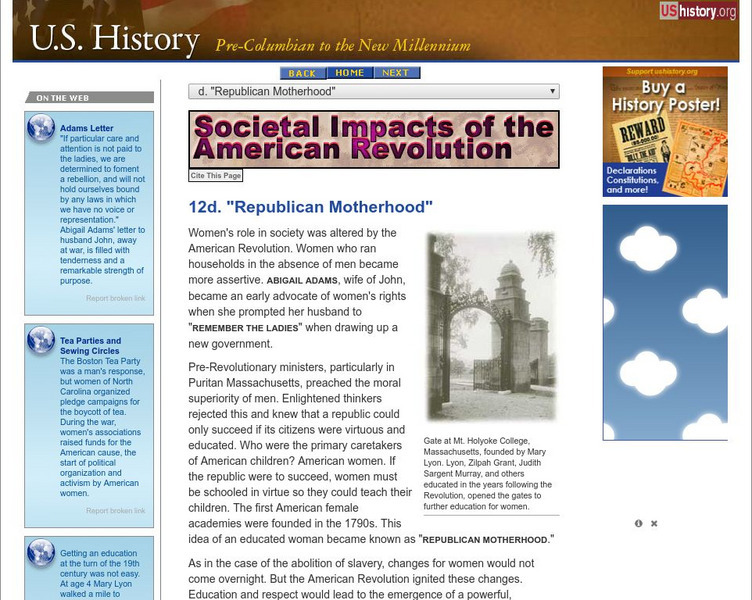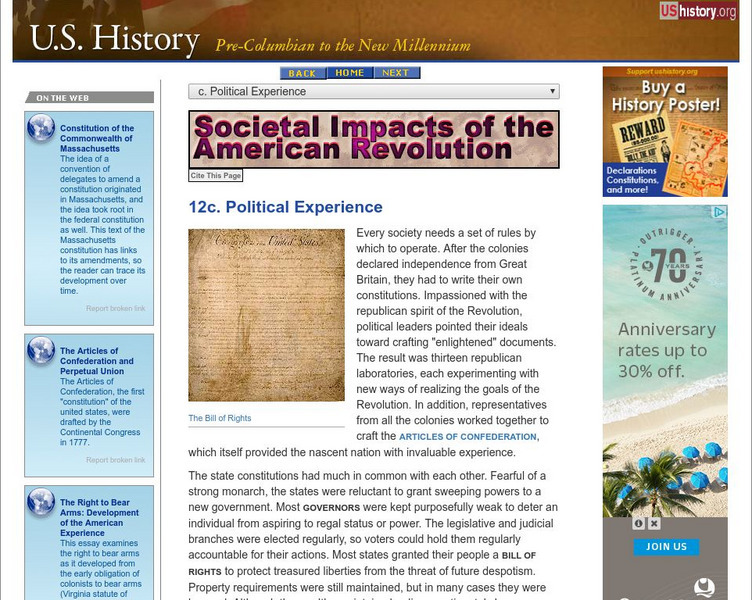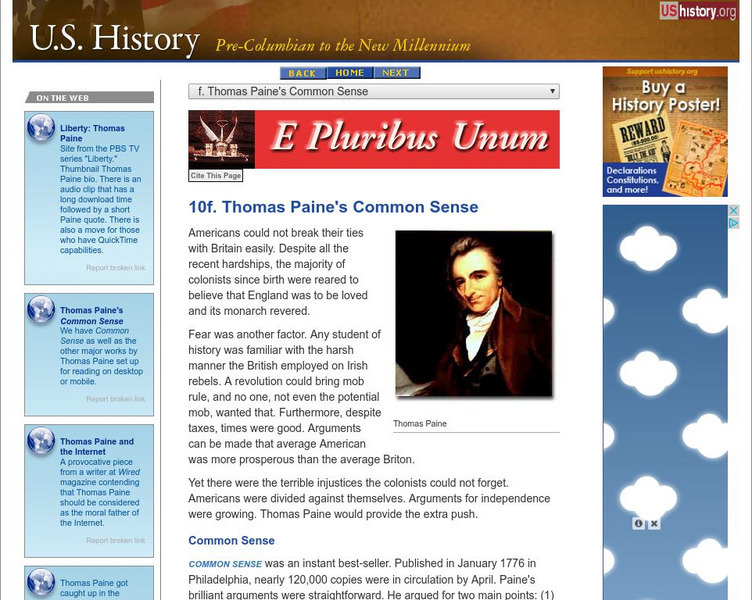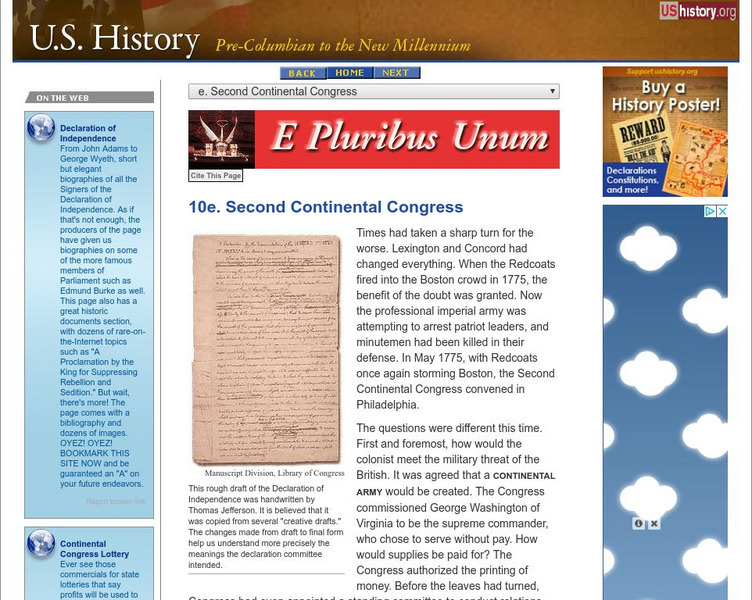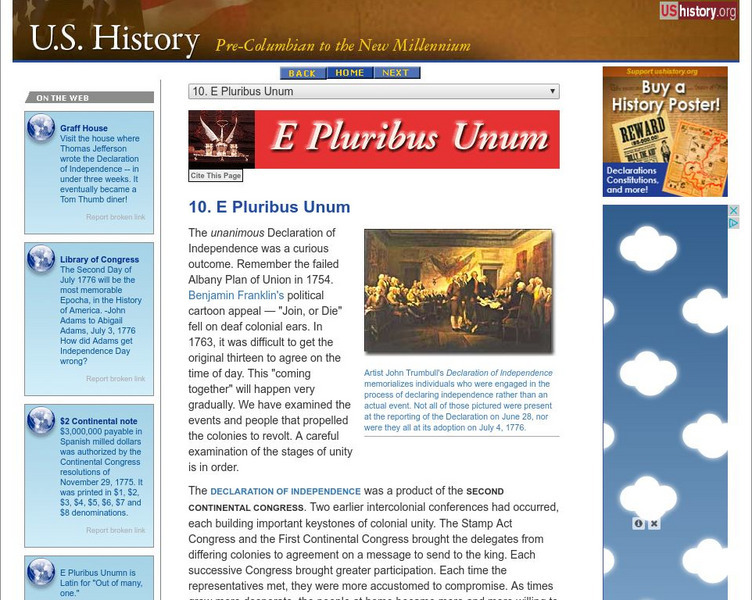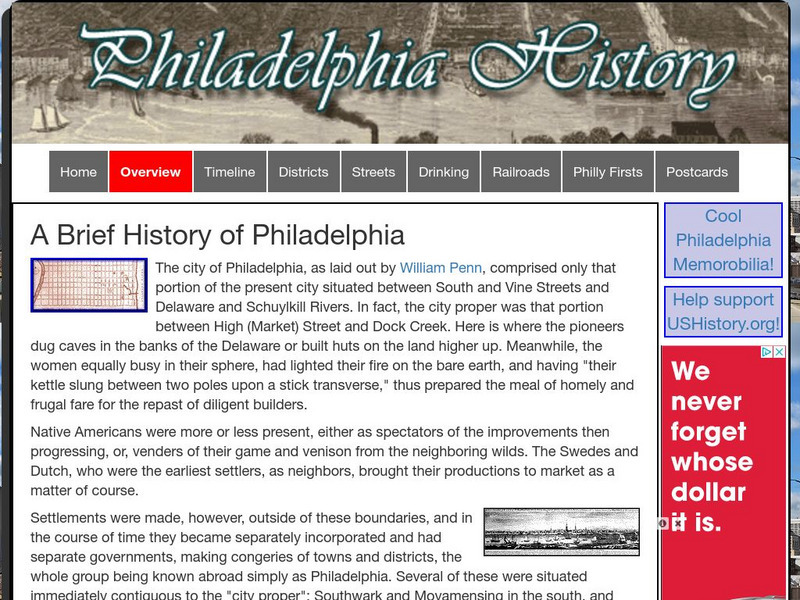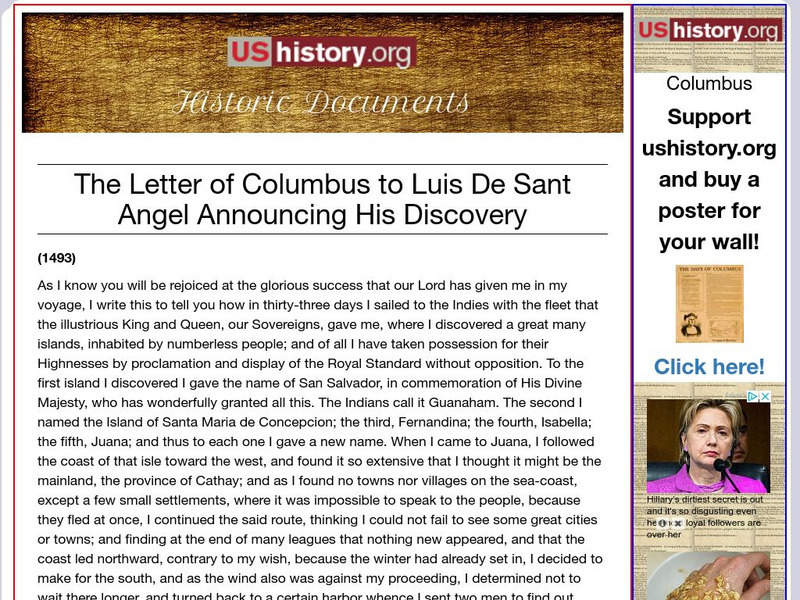Independence Hall Association
U.s. History: Making Rules
Follow the incremental process that the colonial leaders took over a ten-year period of time making new rules that would finally result in independence from Great Britain. See how many of them really didn't plan on independence, but that...
Independence Hall Association
U.s. History: Revolutionary Limits: Native Americans
A good description of the actions and fate of the Native Americans who allied with the British to fight against the Americans. Find out that while the Native Americans had treaties with the British, they were not represented at the talks...
Independence Hall Association
U.s. History: Revolutionary Changes and Limitations: Women
Often the ideal and reality do not conincide for quite some time. That's true of the ideal of true equality between the sexes after the War for Independence. See why the end of the war did not bring indepence for married women, and why...
Independence Hall Association
U.s. History: Revolutionary Changes and Limitations: Slavery
See how the conflicting ideas of land ownership and person ownership flew in the face of the principles of the Declaration of Independence and the ideals of the Revolutionary War.
Independence Hall Association
U.s. History: The War Experience: Soldiers, Officers, and Civiliams
It's a miracle American won the American Revolution. Read about the difficulty in raising and maintaining a professional fighting force. Also find out about the antagonism between the soldiers and civilians. Congress seemed unwilling to...
Independence Hall Association
U.s. History: When Does the Revolution End?
An interesting discussion of the precepts of the Declaration of Independence which claimed that all men were created equal, but still allowed slavery. See what the document had to say about people's rights and "the consent of the governed."
Independence Hall Association
U.s. History: "Republican Motherhood"
Although brief, this article makes clear the change in the role and perception of women in the new United States. See why it was deemed important for women to have the chance to be educated.
Independence Hall Association
U.s. History: Political Experience
Read about how the state governments in the new American nation served as the laboratory to try out new ideas of governing and treating citizens. See how remarkably similar the ideas put forth in state constitutions were to each other.
Independence Hall Association
U.s. History: Societal Impacts of the American Revolution
A look at how the ideals of the American Revolution shaped the new American Republic. Many ideals were not implemented immediately but the seed had been planted.
Independence Hall Association
U.s. History: The French Alliance
The surrender of General Burgoynne at Saratoga gave the French the assurance that the Continental Army had a fighting chance to beat the British. Read about early French help and the formal agreements signed between France and America.
Independence Hall Association
U.s. History: Washington at Valley Forge
The time spent at Valley Forge in the winter of 1777 by the Continental Army was a turning point. Read first-hand about the terrible conditions at this winter encampment, but also see how the winter break in fighting helped make the army...
Independence Hall Association
U.s. History: Loyalists, Fence Sitters, and Patriots
Read about the war of propaganda the Patriots needed to wage in order to persuade the vast majority of Americans, who were at first ambivalent to the cause of independence, to support the ideals of the Revolutionary War.
Independence Hall Association
U.s. History: Thomas Paine's Common Sense
Read about the rhetorical touches Thomas Paine employed in his pamphlet, Common Sense, which galvanized colonial thought about actually breaking away from Mother England.
Independence Hall Association
U.s. History: Second Continental Congress
The Second Continental Congress was the die cast into the river of Revolution. Read about the decisions made and the actions taken in preparation for declaring independence.
Independence Hall Association
U.s. History: First Continental Congress
By 1774 the colonists had had enough of what they saw as British disrespect and lack of concern about their grievances. Read about the cooperation of the colonies in forming the First Continental Congress to address these issues.
Independence Hall Association
U.s. History: Committees of Correspondence
See how organization can be a stepping stone to freedom. Read about the actions and the reasons behind those actions of the Committees of Correspondence prior to the Revolutionary War.
Independence Hall Association
U.s. History: E Pluribus Unum
The fact that the Second Continental Congress convened was evidence that the colonists had had enough from the British Parliament. Read about the ways the colonies finally began to work together and focus on a common plan, resulting in...
Independence Hall Association
U.s. History: Native American Society on the Eve of British Colonization
This is a brief overview of the Native American cultures, languages, and diversity amont the many tribes that lived in North America prior to European contact.
Independence Hall Association
U.s. History: Historic Philadelphia: Philadelphia History
Reading through the beginning of this article will show the role shipping and ship building played in Philadelphia's economy.
Independence Hall Association
U.s. History: Historic Germantown: James Barron
A brief account of the encounter between the USS Chesapeake and the HMS Leopard. This page also explains Commodore James Barron's court martial after the incident with the Leopard.
Independence Hall Association
U.s. History: The Electric Ben Franklin: The New England Courant
Read all about it! Find copies of The New-England Courant published by James Franklin, Benjamin Franklin's older brother. You can also read about Ben Franklin's contribution to this colonial newspaper.
Independence Hall Association
U.s. History: Letter From Columbus
Text from a letter of Christopher Columbus announcing that he had discovered a new land.
Independence Hall Association
U.s. History: New England Colonies: Reaching to Connecticut
Read about how the colony of Connecticut grew from an expansion of the Massachusetts Bay Colony. See how Thomas Hooker's idea of government resulted in a model of colonial charters, and find out how two very different settlements in...
Independence Hall Association
U.s. History: Royal Proclamation of 1763
An explanation of the cause and effects of the Proclamation of 1763 along with the original text itself.



